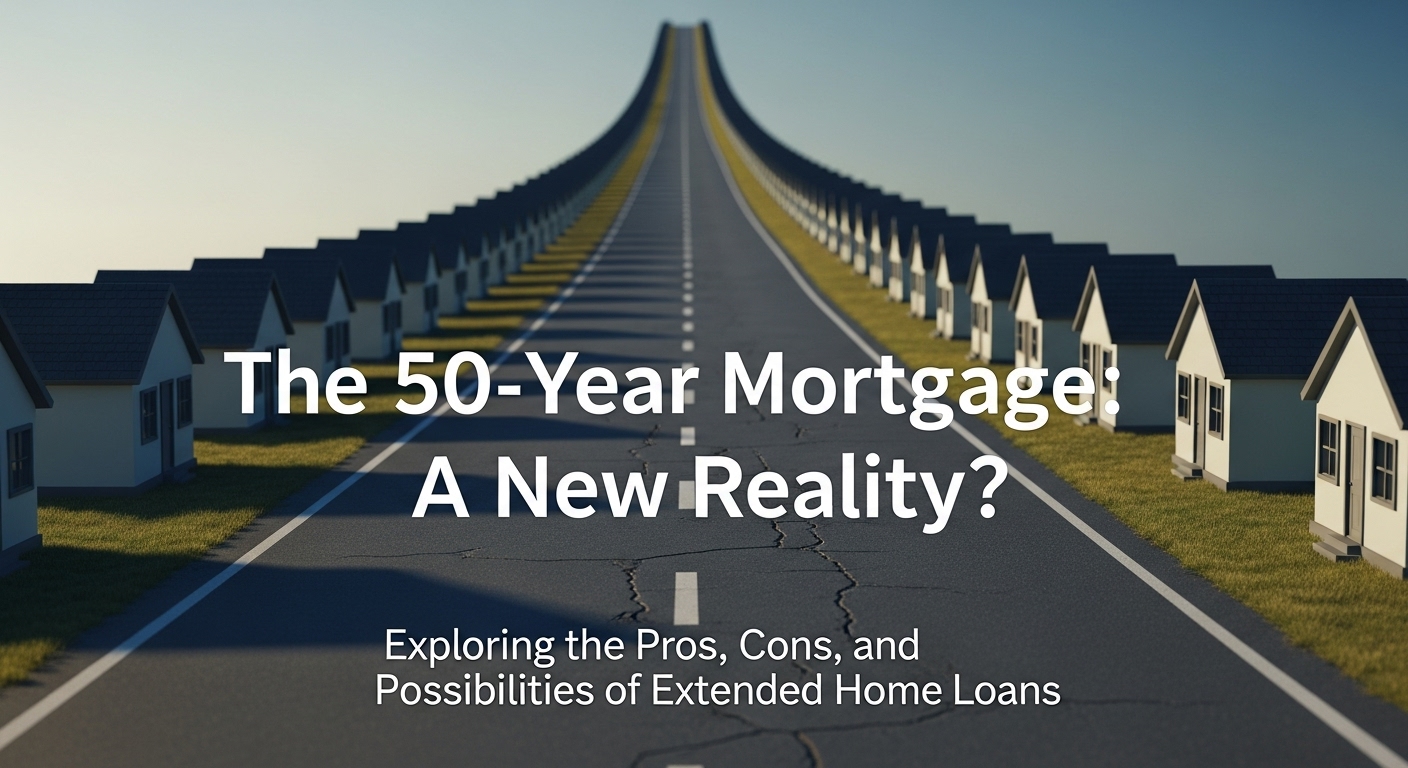Are 50-Year Mortgages Coming? What Homebuyers Need to Know
There’s been a lot of buzz lately about the possibility of 50-year mortgages entering the U.S. market. While nothing is official yet ...

Are 50-Year Mortgages Coming? What Homebuyers Need to Know
There’s been a lot of buzz lately about the possibility of 50-year mortgages entering the U.S. market. While nothing is official yet, the idea alone has sparked big questions from homebuyers, especially first-time buyers navigating today’s high prices and interest rates.
So—what would a 50-year mortgage really mean for you? Let’s break it down in plain English.
Why 50-Year Mortgages Are Being Discussed
Home prices remain elevated, and the supply of affordable homes is still tight. For many first-time buyers, the biggest challenge isn’t the long-term cost—it’s the monthly payment.
A 50-year mortgage stretches repayment further than the traditional 30-year loan, leading to a slightly lower monthly payment.
The key word: slightly.
Even though the reduction isn’t huge, that small difference could make homeownership possible for buyers who are right on the edge of qualifying.
Pros of a 50-Year Mortgage
1. Lower Monthly Payments (Though the Reduction Is Modest)
A longer term means smaller monthly payments. The reduction usually isn’t dramatic, but it can provide just enough breathing room to enter the market.
2. Helps First-Time Buyers Enter the Market Sooner
Many renters feel stuck watching prices climb. A 50-year term could be a bridge to help them buy sooner instead of waiting years.
3. Fits How Long Most People Stay in Their First Home
Most Americans do not keep their first mortgage for 30 years.
Data varies, but most first-time buyers move or refinance within 7–10 years.
If you don’t plan to stay long-term, the extended amortization may not matter much—because you may sell long before halfway through the loan.
Cons of a 50-Year Mortgage
1. Much Higher Total Interest Over the Life of the Loan
Stretching payments over 50 years means significantly more interest paid—even if the monthly savings feel small.
2. Slower Equity Growth
Amortized loans are interest-heavy in the early years. Extending the term slows equity building even more, which can impact long-term wealth.
3. Payment Reduction Isn’t Large
Many assume a 50-year mortgage would have a dramatic drop in the monthly payment—but the real-world difference from a 30-year is typically modest.
4. Not Great for Long-Term Stay-or-Die Homeowners
If you’re planning to stay put for 20–30 years, the lifetime cost of a 50-year loan may outweigh the short-term benefit.
Is a 50-Year Mortgage a Good Idea?
The answer depends on the buyer.
A 50-year mortgage could help first-time buyers who need just a small payment reduction to purchase sooner. And since most people move or refinance within a decade, many would never feel the full downside of the extended term.
But buyers with long-term plans—or buyers focused on building equity quickly—may be better off with more traditional options.
Final Thoughts
If 50-year mortgages become available, they will be a niche tool—not a one-size-fits-all solution. What matters most is understanding how they compare to your goals, your budget, and how long you plan to stay in your home.
If you’d like to see how different loan terms affect your purchasing power, I’m always here to help run the numbers.
About the Author
Chuck Pine
Senior Mortgage Broker
Maine Choice Mortgage
Helping Maine homebuyers with clear guidance, competitive rates, and smart mortgage strategies.
📞 207-949-3770
📧 Chuck@MCMmtg.com
🌐 www.chuckpine.com
Serving homebuyers across Maine with honest advice, local expertise, and a commitment to making the mortgage process as smooth as possible.